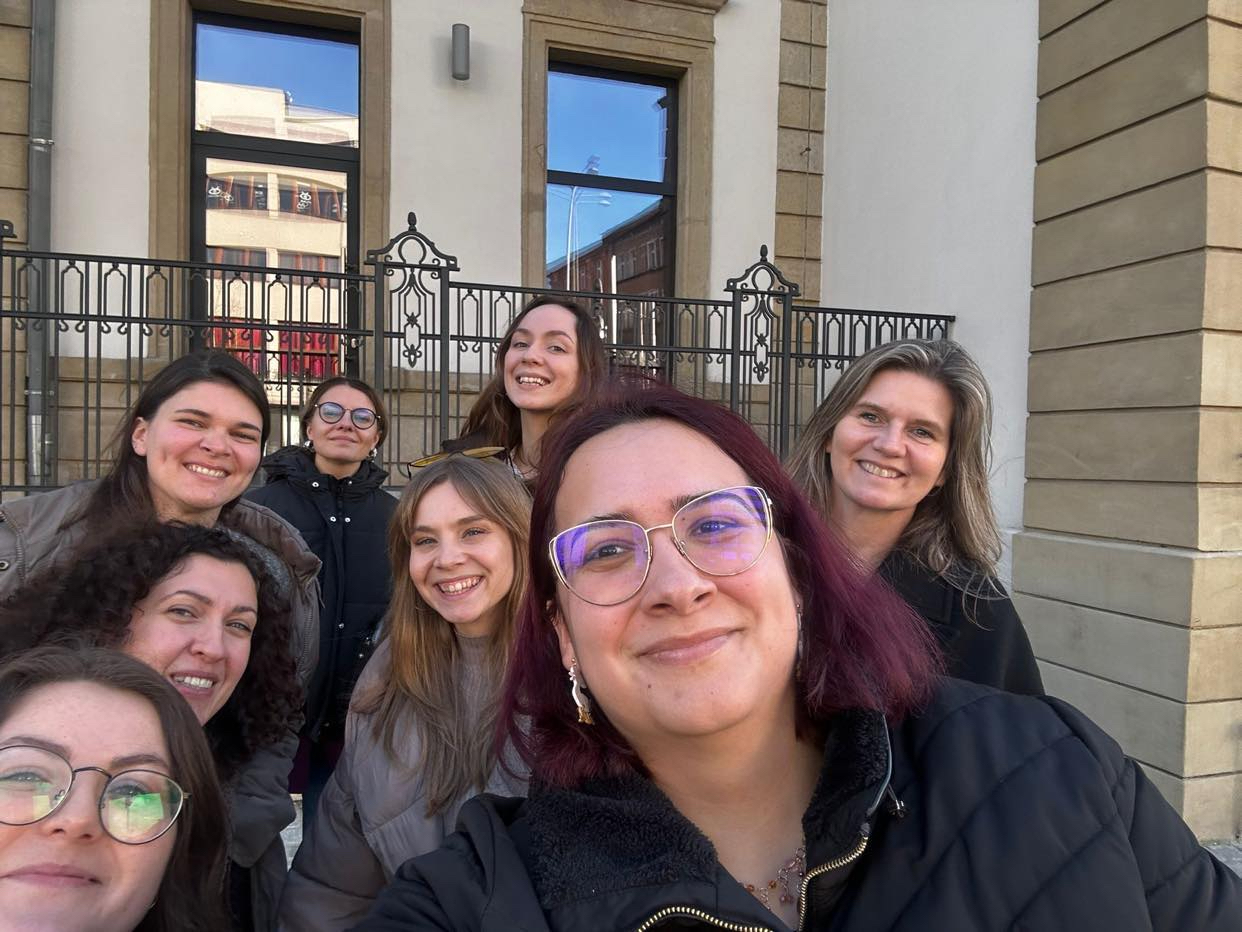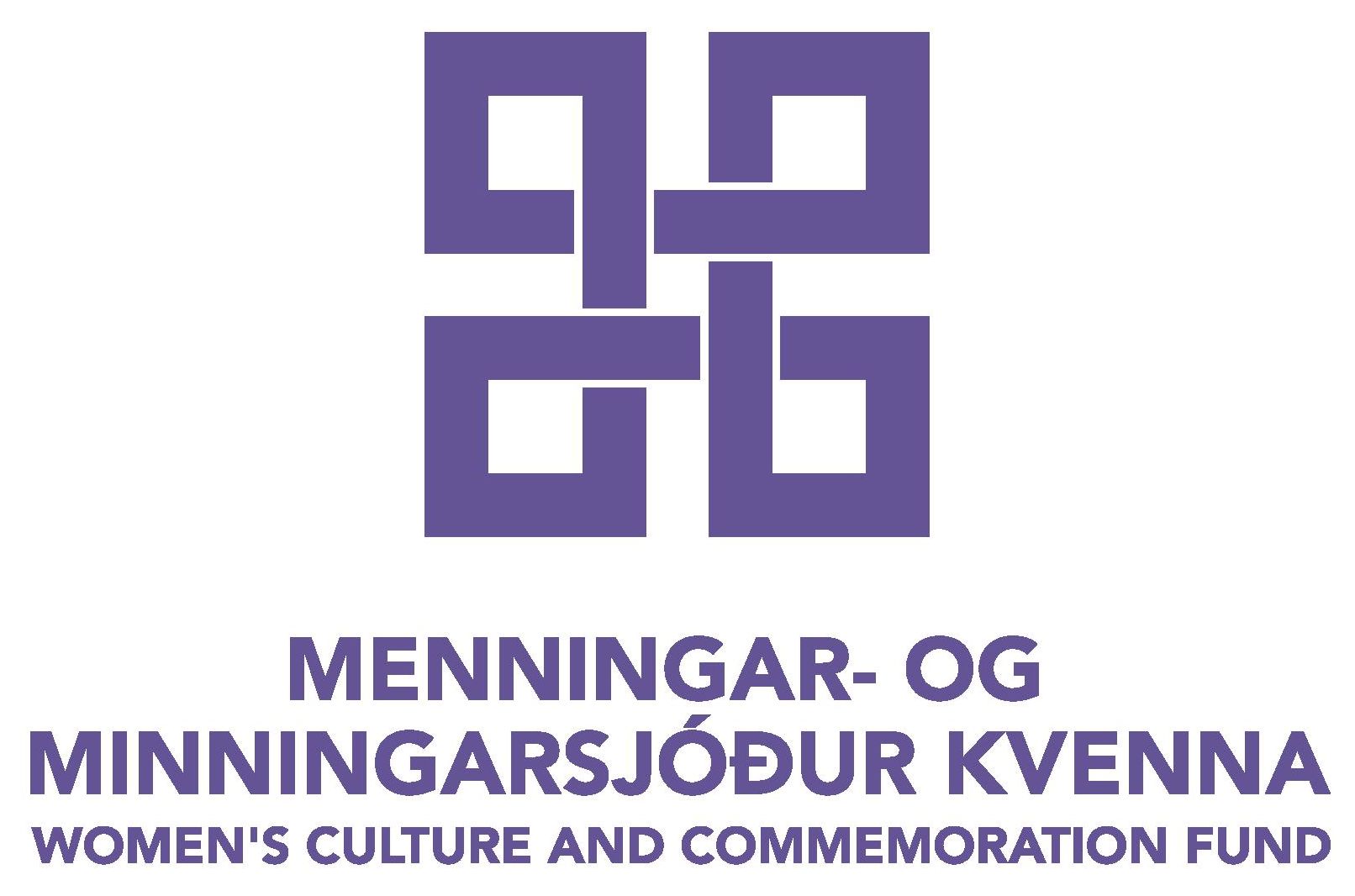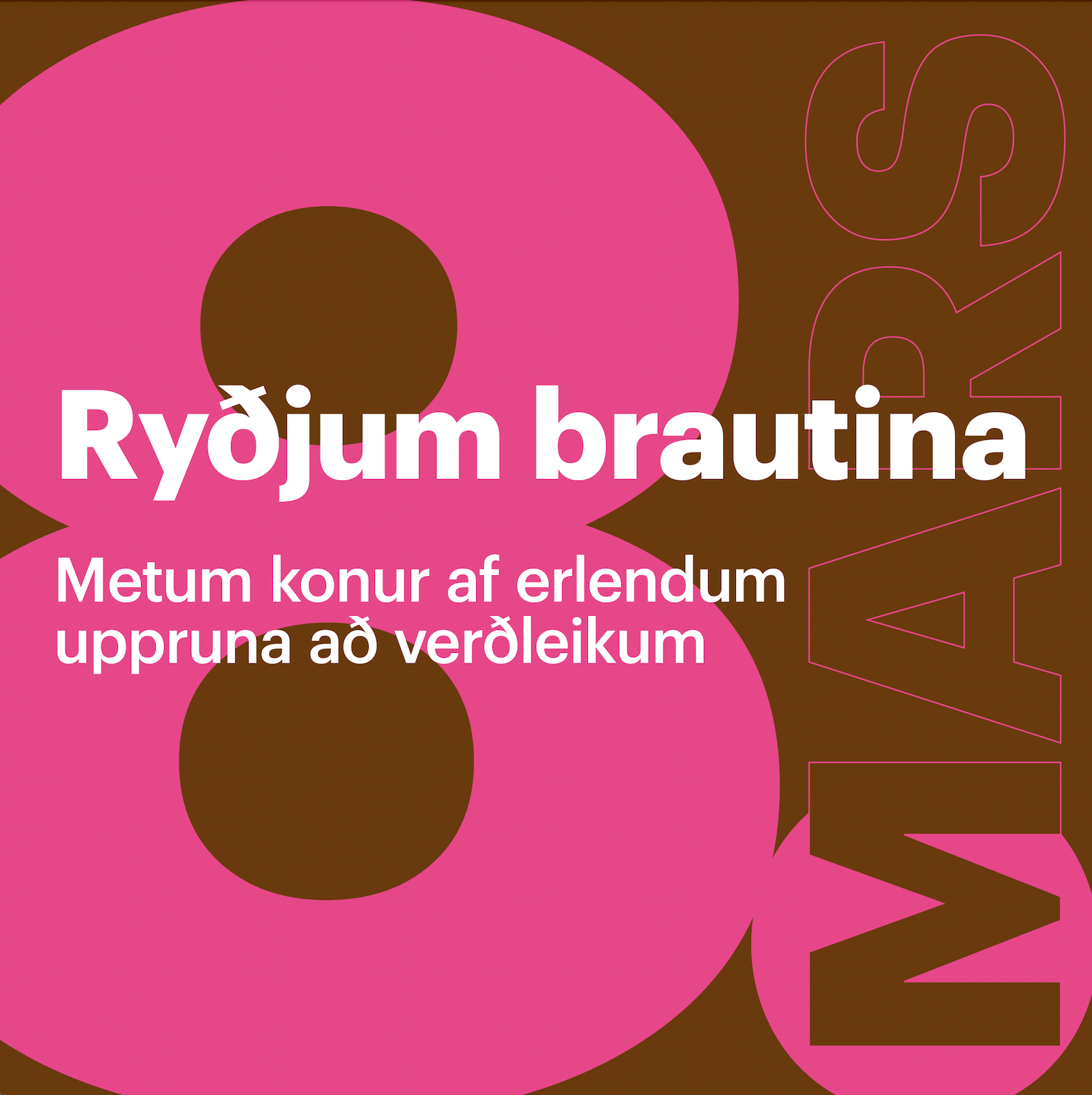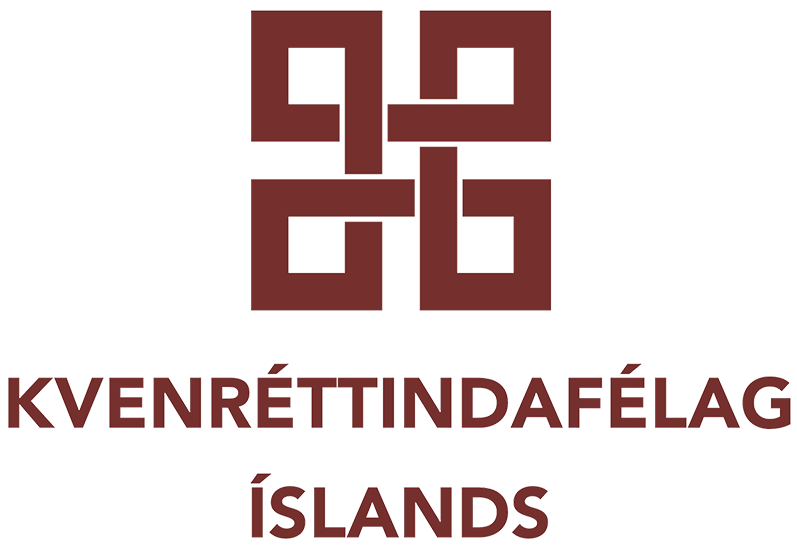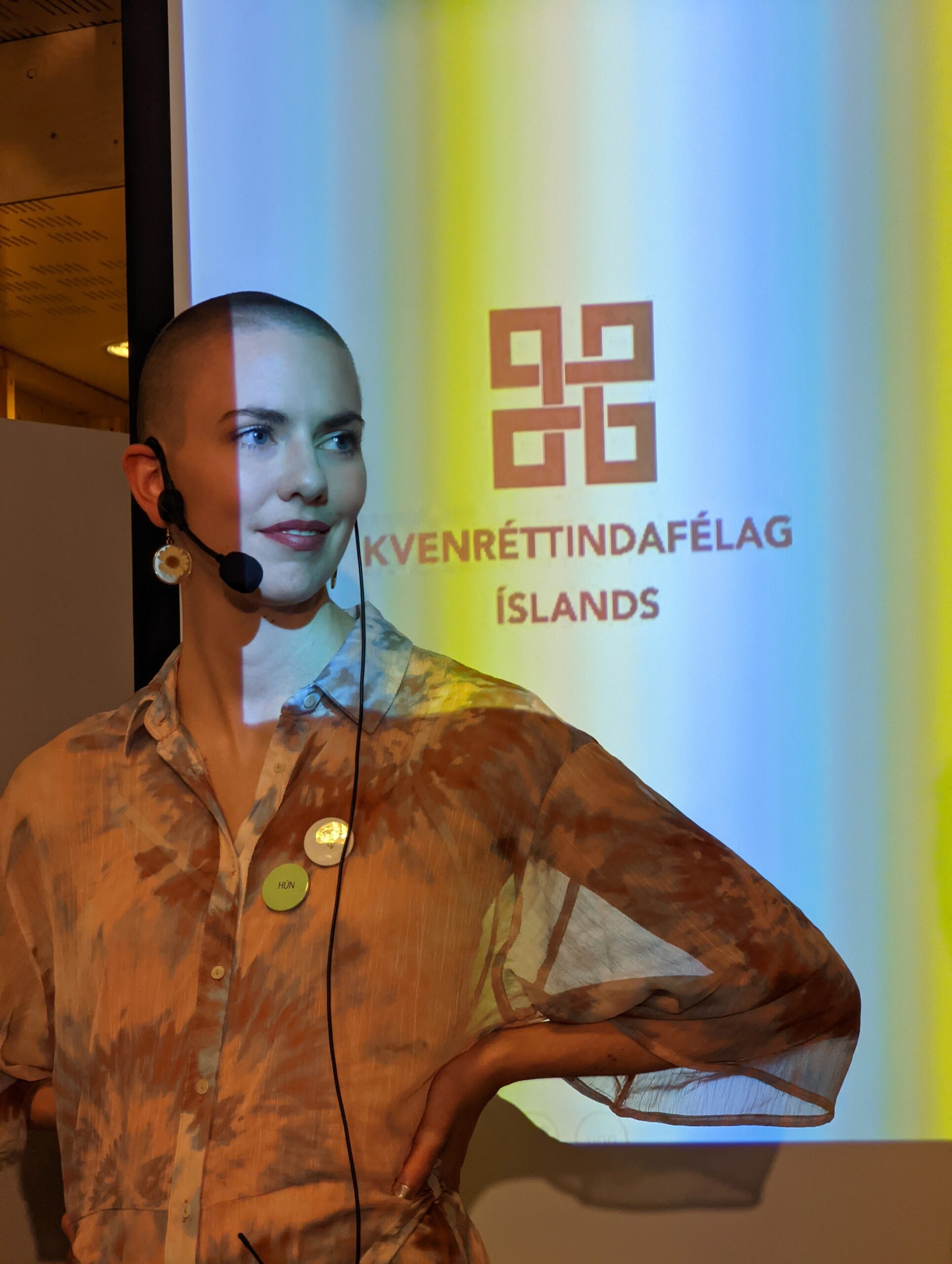
Today the Icelandic Women’s Rights Association published a report by Birta Ósk, who produced the report in collaboration with the Icelandic Women’s Rights Association, with support from the Icelandic Student Innovation Fund.
Being non-binary in Iceland: How is gender equality for non-binary people?: Abstract
Recently, there has been increased awareness about non-binary individuals, which are people who experience themselves outside the woman-man gender binary, but despite that, non-binary individuals have been excluded from the discussion about gender equality. This study seeks to answer the following questions: what are the manifestations of gender inequality, experienced by non-binary persons? and, what systematic barriers do non-binary people face? Four interviews were conducted, and they were analyzed thematically. The results revealed that 1) the lives of non-binary people are characterized by invisibility, in the sense that the society does not expect nor include them, 2) responsibility is assigned to non-binary individuals to create space for themselves in the society and 3) systemic barriers. Systemic barriers can be found within the public administration, health care and educational systems, and workplaces. The research shows that a significant awareness raising must take place in Icelandic society about non-binary issues. The research was funded by the Icelandic Student Innovation Fund (Nýsköpunarsjóður námsmanna) and carried out in collaboration with the Icelandic Women’s Rights Association.
In summary Birta’s research results revealed that: 1) The lives of non-binary people are characterized by invisibility. 2) Unfair responsibility is assigned to the marginalized group to create space for themselves in the society and 3) Non-binary people experience various systemic barriers.
Non-binary people experience considerable gender inequality in Icelandic society, which neither cisgender women and men nor transgender women and men experience. The marginalization of non-binary people in Iceland today is primarily manifested in the invisibility of the group. In nearly all areas of society non-binary people are not expected or not mentioned and their existence is sometimes even denied. Unjust responsibility is imposed on non-binary people to create space in society for themselves and increase their visibility. Non-binary people are expected to educate and correct cisgender people on how to use gender-neutral language and pronouns. They are also expected to convince cisgender people that they are non-binary or of the validity of the gender as a whole. This responsibility should be on the shoulders of cisgender people, the privileged majority group. Cisgender people need to educate themselves on how to talk in gender neutral way and stand with non-binary people against hate speech directed at them. These beforementioned patters of invisibility and unjust responsibility are reflected in the systemic barriers non-binary people face. These barriers can be found within Icelandic public administration, health care, the educational system, and workplaces.
The research shows that awareness must be raised significantly in Icelandic society about the issues that non-binary people face. Further research is necessary e.g., quantitative research on non-binary peoples’ health, family life, education, salary, and more that is already known about their cisgender peers. The Icelandic government has an obligation to consider gender equality for the group by eliminating the systemic barriers. You can see a list of suggestions for improvement for the Icelandic government in the table below.
Suggestions for improvement for the Icelandic government on how to promote gender equality for non-binary people
| Systematic barriers | Suggestions for improvement | |
| 1 | The society does not include non-binary people resulting in invisibility of non-binary people. | Actions to increase visibility, tolerance and positive awareness of non-binary people. |
| 2 | The gender inequality non-binary people face is underestimated due to exclusion from reports and research on gendered patterns and discrimination. | Include non-binary people in gender-disaggregated statistics and research on the status of gender equality in Iceland, in the fields of health, education, culture, etc. It is also important to finance more research on the status of non-binary and other trans people. |
| Public Administration | ||
| 3 | Non-binary people do not take up a gender-neutral registration in the Icelandic National registy, due to risk of discrimination while travelling. | Allow the choice of gender registration on passport (that is different from registration in national registry) or give non-binary people the option to carry two passports.
Revise the Icelandic Act on Names n.o. 45/1996. |
| 4 | Costly to change the registration of name and/or gender. Abolish fees for correction of name and gender in the national register (9,000 ISK) and fees for changing passports (13-26,000 ISK) and other identification documents. | Abolish fees for correction of name and gender in the national register (9,000 ISK) and fees for changing passports (13-26,000 ISK) and other identification documents. |
| Healthcare system | ||
| 5 | The process of medically correcting one’s gender is deficient. | Better funding for the department of the national hospital service for trans people. Seek consultation from trans and non-binary people and/or specialists when revising work processes. |
| 6 | The department of the national hospital service trans people is understaffed | Better funding for the department of the national hospital service trans people. Increase workforce. Recruit a trans person into the department and increase education within the department about non-binary issues. |
| 7 | Trans health care is costly. | Revise the standards of the National healthcare insurance (Sjúkratryggingar Íslands) on trans health care, which currently specifically discriminates against non-binary people. |
| 8 | Non-binary people are met with a lack of understanding and knowledge when they seek general health care. | Require all health care professionals to attend training on the issues of non-binary people and other minority groups. |
| School system and workplaces | ||
| 9 | Non-binary people face discrimination in the school system and within workplaces. | Measures should be taken to increase the visibility of non-binary people. Provide education and training on non-binary issues for school staff and staff of public institutions. |
The report can be read in full here (in Icelandic).

